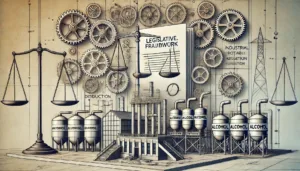Facts of the Case:
On January 9, 2013, at about 5:15 AM, the appellant, while driving a lorry on the Nilakottai to Madurai road near Karigalan petrol pump, allegedly drove in a rash and negligent manner, causing the death of one Karthik and six cows. An FIR was registered against the appellant under Sections 279 and 304(A) of the IPC. The trial court convicted him, imposing a fine under Section 279 and sentencing him to one year of simple imprisonment under Section 304(A). The sentence was reduced to three months by the High Court. The appellant later deposited ₹1,00,000 towards compensation.
Contentions of the Appellant:
The appellant contended that the death of Karthik and the loss of the cattle were not caused by rash and negligent driving but by the chaotic movement of cattle on the road. The appellant emphasized his prolonged bail and the lapse of time since the incident, seeking leniency.
Contentions of the Respondent:
The State argued that the appellant’s rash and negligent driving directly caused the accident and the resulting fatalities. Eyewitness accounts consistently supported the prosecution’s case, denying claims of the cattle causing the accident.
Issues of the Judgment:
- Whether the appellant drove the lorry in a rash and negligent manner causing the death of Karthik and the cattle.
- Whether the sentence imposed should be reconsidered in light of mitigating circumstances.
Observations/Findings by the Supreme Court:
The Supreme Court found that the evidence provided by eyewitnesses substantiated the charge of rash and negligent driving. However, considering the passage of time (11 years since the incident) and the appellant’s willingness to compensate the victim’s family, the Court decided to reduce the punishment. The appellant’s conviction was upheld, but the sentence of imprisonment and fines were set aside, substituting them with the payment of compensation under Section 357(3) of the Cr.P.C.
Principle of the Case:
The case underscores the principle of balancing punitive justice with restorative measures, especially when mitigating circumstances and prolonged delays are involved.
Final Order:
The conviction under Sections 279 and 304(A) of the IPC was upheld. The appellant was ordered to pay ₹1,00,000 along with accrued interest to the victim’s mother as compensation. The sentence of imprisonment and fines was set aside.
Impact on Public Law and Order:
This judgment highlights the judiciary’s willingness to adopt a restorative approach in cases involving long delays. It emphasizes the importance of compensation to victims’ families while ensuring that the offender is held accountable. Such judgments foster public confidence in the justice system by showing sensitivity to both legal principles and human considerations.
Case Citation:
Supreme Court of India, Muthupandi v. State through the Inspector of Police, Criminal Appeal No. _________ of 2024 (@ SLP (Crl.) No. 16486 of 2023), Decided on December 10, 2024.








